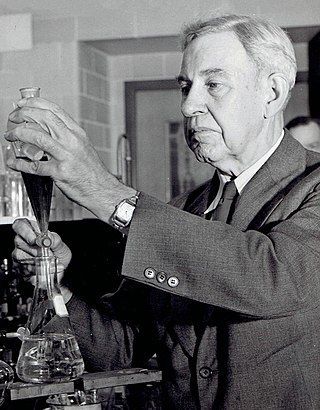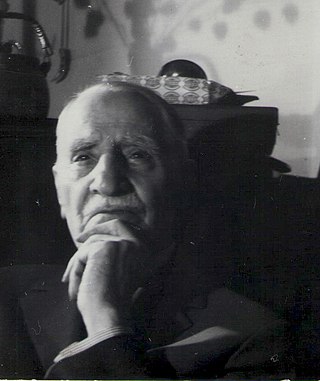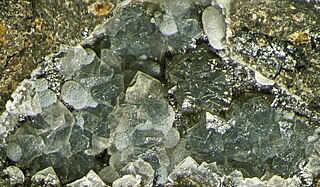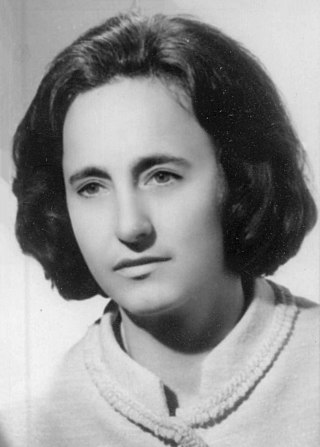
Nicolae Constantin Paulescu was a Romanian physiologist, professor of medicine, and politician, most famous for his work on diabetes, including patenting pancreine. The "pancreine" was an extract of bovine pancreas in salted water, after which some impurites were removed with hydrochloric acid and sodium hydroxide. Paulescu was also, with A. C. Cuza, co-founder of the National Christian Union and later, of the National-Christian Defense League, an early ultranationalist and anti-Semitic Romanian party. He was also a leading member of the militant religious fascist Iron Guard.
In petrochemistry, petroleum geology and organic chemistry, cracking is the process whereby complex organic molecules such as kerogens or long-chain hydrocarbons are broken down into simpler molecules such as light hydrocarbons, by the breaking of carbon–carbon bonds in the precursors. The rate of cracking and the end products are strongly dependent on the temperature and presence of catalysts. Cracking is the breakdown of large hydrocarbons into smaller, more useful alkanes and alkenes. Simply put, hydrocarbon cracking is the process of breaking long-chain hydrocarbons into short ones. This process requires high temperatures.

Vladimir Nikolayevich Ipatieff, also Ipatyev was a Russian and American chemist. His most important contributions are in the field of petroleum chemistry and catalysts.

Yankev Shternberg was a Yiddish theater director, teacher of theater, playwright, avant-garde poet and short-story writer, best known for his theater work in Romania between the two world wars.
Cyclopentane (also called C pentane) is a highly flammable alicyclic hydrocarbon with chemical formula C5H10 and CAS number 287-92-3, consisting of a ring of five carbon atoms each bonded with two hydrogen atoms above and below the plane. It occurs as a colorless liquid with a petrol-like odor. Its freezing point is −94 °C and its boiling point is 49 °C. Cyclopentane is in the class of cycloalkanes, being alkanes that have one or more carbon rings. It is formed by cracking cyclohexane in the presence of alumina at a high temperature and pressure.

Catalytic reforming is a chemical process used to convert naphthas from crude oil into liquid products called reformates, which are premium "blending stocks" for high-octane gasoline. The process converts low-octane linear hydrocarbons (paraffins) into branched alkanes (isoparaffins) and cyclic naphthenes, which are then partially dehydrogenated to produce high-octane aromatic hydrocarbons. The dehydrogenation also produces significant amounts of byproduct hydrogen gas, which is fed into other refinery processes such as hydrocracking. A side reaction is hydrogenolysis, which produces light hydrocarbons of lower value, such as methane, ethane, propane and butanes.

Fluid catalytic cracking (FCC) is the conversion process used in petroleum refineries to convert the high-boiling point, high-molecular weight hydrocarbon fractions of petroleum into gasoline, alkene gases, and other petroleum products. The cracking of petroleum hydrocarbons was originally done by thermal cracking, now virtually replaced by catalytic cracking, which yields greater volumes of high octane rating gasoline; and produces by-product gases, with more carbon-carbon double bonds, that are of greater economic value than the gases produced by thermal cracking.
1,2,4-Trimethylbenzene, also known as pseudocumene, is an organic compound with the chemical formula C6H3(CH3)3. Classified as an aromatic hydrocarbon, it is a flammable colorless liquid with a strong odor. It is nearly insoluble in water but soluble in organic solvents. It occurs naturally in coal tar and petroleum (about 3%). It is one of the three isomers of trimethylbenzene.

Iorgu Iordan was a Romanian linguist, philologist, diplomat, journalist, and left-wing agrarian, later communist, politician. The author of works on a large variety of topics, most of them dealing with issues of the Romanian language and Romance languages in general, he was elected a full member of the Romanian Academy in 1945. He was head of its Institute of Linguistics between 1949 and his retirement in 1962.

Miron Constantinescu was a Romanian communist politician, a leading member of the Romanian Communist Party, as well as a Marxist sociologist, historian, academic, and journalist. Initially close to Communist Romania's leader Gheorghe Gheorghiu-Dej, he became increasingly critical of the latter's Stalinist policies during the 1950s, and was sidelined together with Iosif Chișinevschi. Reinstated under Nicolae Ceauşescu, he became a member of the Romanian Academy.
Methylcyclohexane (cyclohexylmethane) is an organic compound with the molecular formula is CH3C6H11. Classified as saturated hydrocarbon, it is a colourless liquid with a faint odor.

Faujasite is a mineral group in the zeolite family of silicate minerals. The group consists of faujasite-Na, faujasite-Mg and faujasite-Ca. They all share the same basic formula (Na2,Ca,Mg)3.5[Al7Si17O48]·32(H2O) by varying the amounts of sodium, magnesium and calcium. Faujasite occurs as a rare mineral in several locations worldwide.
Vladimir Haensel was an American chemical engineer who invented the platforming process - a platinum catalytic process for reforming petroleum hydrocarbons into gasoline. In addition, he was influential in the creation of catalytic converters for automobiles.

Elena Ceaușescu was a Romanian communist politician who was the wife of Nicolae Ceaușescu, General Secretary of the Romanian Communist Party and leader of the Socialist Republic of Romania. She was also the Deputy Prime Minister of Romania. Following the Romanian Revolution in 1989, she was executed alongside her husband on 25 December.
Justin Georgescu was a Romanian communist activist and anti-fascist militant assassinated in police custody during World War II.

Alexandru T. Balaban is a Romanian chemist who made significant contributions to the fields of organic chemistry, theoretical chemistry, mathematical chemistry, and chemical graph theory.

Alexandru Bârlădeanu was a Romanian Marxian economist and statesman who was prominent during the communist regime until being sidelined in 1968. In his later years, following the collapse of the regime, he served as Senate President.
Charles T. Kresge is a chemist and retired Chief Technology Officer (CTO) of Saudi Aramco. He was R&D Vice President at the Dow Chemical Company. His area of expertise is inorganic synthesis, and his primary field of research is in the area of crystalline aluminosilicate materials, particularly for the discovery of mesoporous molecular sieves.
Eugen C. Botezat was an Austro-Hungarian-born Romanian zoologist.

Radu Grigorovici was a Romanian physicist specializing in condensed matter physics, solid-state physics, and amorphous semiconductors.











